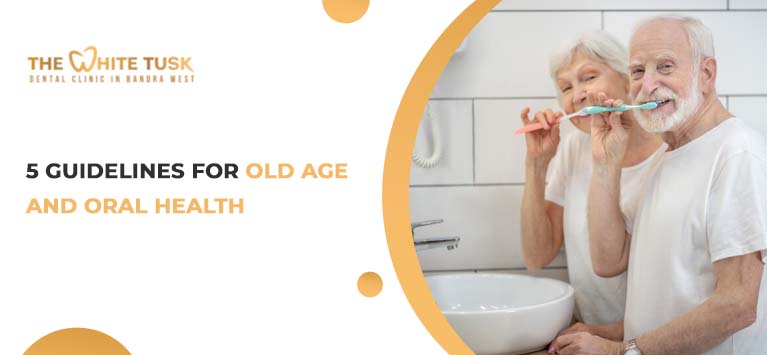
Have you observed that as time passes, both our physical requirements and our bodily condition evolve? Similar to how we diligently care for our skin and hair, it becomes crucial to also prioritize our oral well-being, particularly during the later years of life. This phase presents distinct challenges that, when overlooked, may significantly impact one’s overall quality of life.
During the elderly years, dental hygiene emerges as a vital component for preserving a robust oral cavity and exuding self-assured smiles. This piece unveils the prevalent issues and delineates five fundamental strategies for nurturing your dental health in your senior years, ensuring a worry-free display of your radiant smile.
The key to maintaining a healthy mouth as you age lies in unwavering commitment to impeccable hygiene practices throughout your lifetime. It is readily apparent that individuals who have diligently cared for their dental health are better prepared to safeguard it in the future. Nevertheless, it is paramount to heed prescribed advice and exercise caution, as the passage of time is inevitable, and there are effects beyond our control.
The consequences that occur in oral health in the elderly:
what is known as xerostomia or dry mouth. A pathology that facilitates the appearance of cavities and bad breath.
the pieces become weaker and lose enamel. In addition, tissues take longer to regenerate.
both resistance and elasticity are lost.
the gums recede, and as a result, the teeth appear longer or protruding.
With age, we lose bone density. As a consequence, teeth can be lost.
The importance of maintaining good oral health spans a lifetime, yet it’s an undeniable reality that advancing age amplifies the risk of oral problems and pathologies. Whether triggered by a previous illness, diminishing abilities, prescribed medications, or the inexorable march of time, this life stage poses an elevated susceptibility to oral ailments.
We live in a time in which we like to look and feel good and in which our elders have an excellent quality of life, which is why it is essential to preserve our well-being. Talk, eat, or smile without discomfort, limitations, or worries.
With age, there is a greater chance of suffering from certain oral diseases, including:
This is produced in part by gum recession since it leaves the root more exposed to possible bacteria and germs in the mouth.
It occurs due to wear on the teeth and lack of enamel.
Also called gum inflammation, if not treated in time, it leads to a much more serious and even irreversible infection: periodontitis.
It is the consequence of not treating gingivitis. It mainly manifests itself with symptoms such as bleeding and inflammation of the gums, bad breath, and tooth mobility.
Below are some of the guidelines that should be taken into account by the elderly to promote good oral health:
The foundation of any oral health routine is brushing. Be sure to brush your teeth at least twice a day with fluoride toothpaste and a soft-bristled toothbrush. The technique is essential: make circular movements, and don’t forget the tongue and palate. Daily flossing is also crucial for removing food debris that your toothbrush can’t reach.
As individuals grow older, there is an increased susceptibility to the onset of oral ailments like periodontal disease and dental caries. Consistent biannual appointments with dental professionals enable the timely identification of issues, leading to suitable interventions. Furthermore, the imperative nature of professional dental cleanings cannot be overstated in eliminating the buildup of stubborn tartar.
If you use dentures or any other type of prosthesis, it is vital to ensure proper hygiene and maintenance. Clean them daily and prevent bacteria from accumulating. Likewise, if you feel discomfort or instability with them, consult your dentist to adjust them or consider a possible renewal.
The impact of our dietary choices extends directly to our dental well-being. A diet abundant in essential vitamins and minerals while keeping sugar intake minimal plays a pivotal role in fortifying both our teeth and gums. It’s imperative to include calcium-rich food items, like dairy products, in our daily intake to preserve the density of our jawbone. In addition, it is advisable to steer clear of highly acidic or sugary edibles and beverages, as they can expedite the erosion of enamel and foster the development of cavities.
Dry mouth is frequent as we age owing to reduced saliva production or as a side effect of several drugs. Saliva is required to neutralize acids and prevent cavities. As a result, maintaining adequate hydration by regularly drinking water is essential. If you’re using medications known to cause dry mouth, consider discussing potential dose modifications or exploring alternative options with your healthcare provider.
In old age, maintaining oral health becomes crucial for a comfortable and confident lifestyle. Despite the natural changes that occur, good hygiene habits and regular dental care can significantly impact overall well-being. Conditions like dry mouth, enamel wear, and gum recession are common, emphasizing the need for tailored attention. Regular dental check-ups, meticulous hygiene routines, and a balanced diet rich in essential nutrients are key to preserving oral health. For those using prostheses, proper maintenance and adjustments are vital. Staying hydrated and managing medication side effects further contribute to a worry-free smile. By following these guidelines, seniors can enjoy a higher quality of life and continue to share their smiles with confidence.